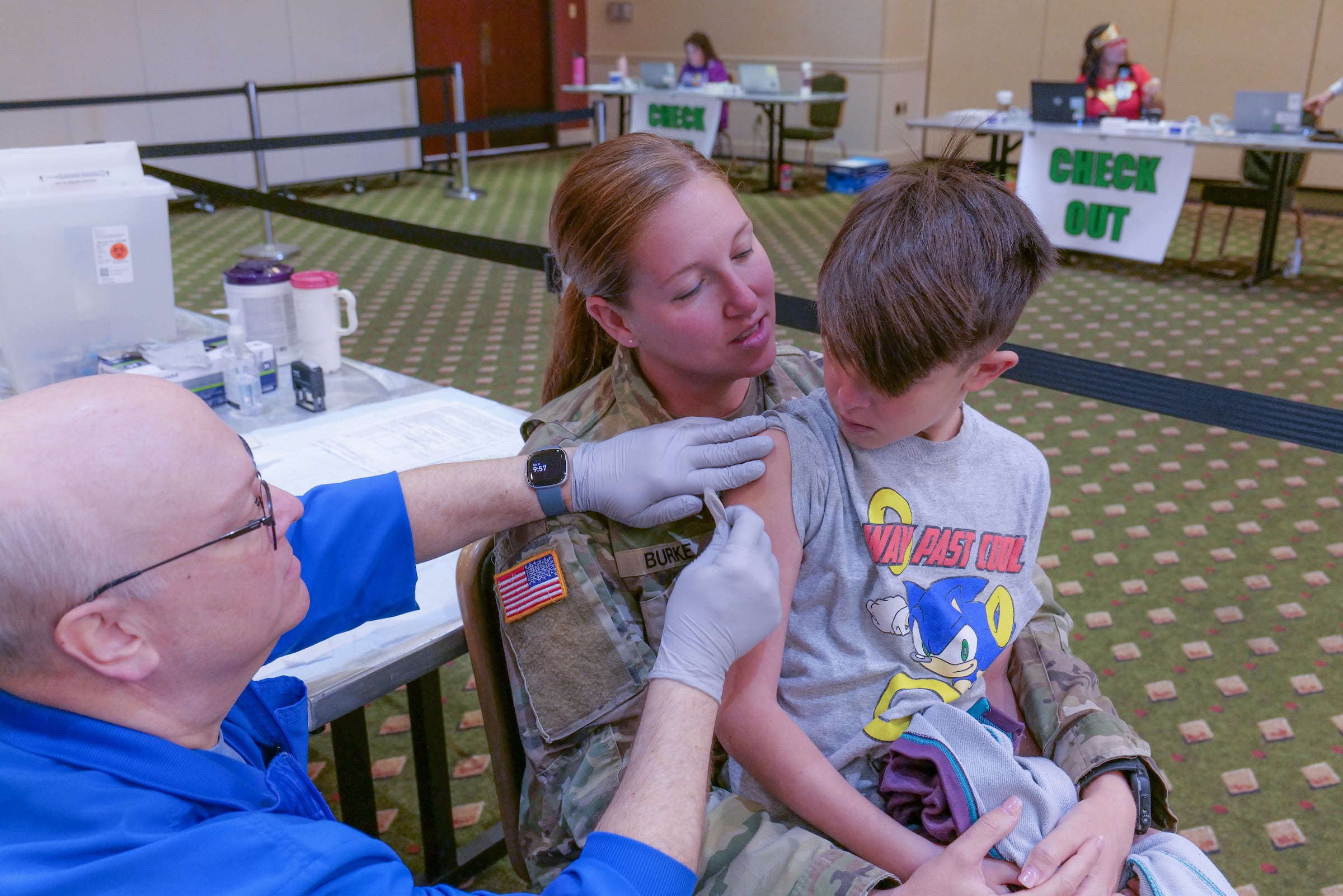Seven years ago, Lakesha Cole was a Marine Corps spouse, mother of two, and a budding entrepreneur. Her life was upended when her Marine was told that the family would be moving to Okinawa, Japan. With $500 of personal savings, Cole launched a business — a daunting endeavor, even for an entrepreneur who doesn’t move every few years. With scrappiness and a never-give-up attitude, the now mother of three navigated the ins and outs of launching a brick-and-mortar shop in Okinawa, doing extensive research, learning about customs laws, and managing Japanese legal requirements.
New research findings, announced last Thursday by Grow with Google and Hiring Our Heroes, in collaboration with Google.org, indicate that Lakesha isn’t alone in deciding a career that she could build and move with the mobile military lifestyle is a career worth fighting for. “Examining Entrepreneurship, Remote Work, and Upskilling as Drivers of Economic Success for Military Spouses,” found that military spouses are very interested in owning their own businesses, and once launched, those businesses are just as profitable as their civilian counterparts. The appeal of self-employment for many military spouses is a flexible work schedule, one that allows them to work longer hours during certain stages of their careers and reduce their workloads when other areas of their lives become the immediate priority.
Especially now, in the wake of COVID-19, military spouses, like so many American business owners, are looking for the resources and training to shore up and build their business plans.
Over the past decade, many private sector companies, nonprofit organizations, and government agencies have taken the first step. They have recognized the critical importance of military family readiness, and have stepped up to support military spouse career opportunities. But none of us can solve the military spouse employment challenges alone. Military spouses now recognize that there are resources to support them in their education and career goals, but reported that with the wealth of information, it’s often hard to figure out where to start.
That’s why together, Hiring Our Heroes and Grow with Google launched the MilSpouse Roadmap, an interactive hub designed to bring together the best resources, tips, tools, and training to help put military spouses on the road to economic success. The tool allows military spouses to navigate three potential career journeys: entrepreneurship, remote work, and re-skilling, all areas where military spouses have the opportunity to thrive. The MilSpouse Roadmap helps spouses anticipate and prepare for common challenges they may face, effectively helping them to build and safeguard careers that work with their military lifestyle.
For military spouses interested in pursuing self-employment, the MilSpouse Roadmap has resources to help determine if owning a business is the right long-term choice for them. As they complete roadmap milestones, they also explore other self-employment opportunities, such as becoming a consultant, contractor, or freelancer and see how this career journey intersects with remote work opportunities. As the user continues through this journey module, they are connected with resources, like coaching packages offered through the Defense Department’s Spouse Education and Career Opportunities (SECO) and a ready-to-use workshop toolkit from the U.S. Small Business Administration, that streamline this career journey for interested military spouses.
The MilSpouse Roadmap is a living site, and we look forward to adding quality resources for military spouses.
We hope that the MilSpouse Roadmap will serve as a useful jumping off point that military spouses can visit again and again throughout their career progression. We encourage other corporate and nonprofit partners to use this research and its insights to drive programming and resource development to support military families. We also recognize the role that supportive workplace policies have in reducing barriers facing military spouses. To that end, Google is committing to offering paid leave benefits up to five days to military spouses and domestic partners experiencing changes of location due to military orders or those preparing for a deployment or activation.
Our research found that many military spouses have considered the possibility of their family leaving military service, specifically to support their work or career. Thirty-nine percent of military spouses have seriously discussed this possibility with their service members, and of those whose spouses had already retired or transitioned, 32 percent reported that supporting their own work or career was a major factor in the decision of their service member to leave the military. As one spouse in our focus groups put it: “I want a career too... I’ve been sacrificing too long.”
Earlier research showed that more than half of all military spouses report that they do not believe a military lifestyle supports professional career opportunities for both spouses. With 44 percent of military spouses stating that their families are living paycheck to paycheck or struggling financially, that has a direct impact on national security. But that doesn’t have to be the case.
Armed with new data, a new tool, and new commitments, we hope that today’s actions can inspire all of us to work together and empower military spouses to reach their career goals. Employers can visit Hiring Our Heroes to learn more about the programs and tools available to better support military spouses in the workplace.
Eric Eversole is vice president of the U.S. Chamber of Commerce and president of Hiring Our Heroes. Lisa Cohen Gevelber is global vice president of Grow with Google and Google for Startups.
Editor’s note: This is an Op-Ed and as such, the opinions expressed are those of the author. If you would like to respond, or have an editorial of your own you would like to submit, please contact Military Times managing editor Howard Altman, haltman@militarytimes.com.





